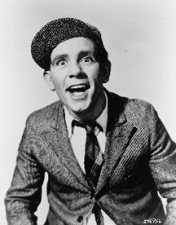
I found this today in a local charity shop for 75p. I have uploaded some tracks before by the Wurzels but they have long since dried up. So here is both sides of this LP on the EMI label from 1966/67 recorded "Live at the Royal Oak, Nailsea, Zummerzet".
"Born Alan John Cutler in Bristol in 1930, he spent his early life in the small town of Nailsea in Somerset, and one of his first jobs involved working for a local cider mill — but, influenced by Len Uke Thomas (a local Bristol comic singer and entertainer) and a stint on the road as Acker Bilk's road manager, he took to a career in music. Armed only with a few songs he had written, in June 1966 he approached agent John Miles, who helped put together the band the Wurzels with guitarist and banjo player Reg Quantrill, accordionist Reg Chant, double bass player John Macey, and Brian Murphy on the wurzelphone — in reality a tuba. One of the first songs they played live was Cutler's composition "Twice Daily" — about a shotgun wedding between a young farmhand and the farmer's daughter Lucy Bailey — which was later to be banned from radio play by the BBC owing to its risqué lyrical content.
Encouraged by the local sales in the West Country, EMI nationally released the single "Drink Up Thy Zider" backed with "Twice Daily" and saw it scrape into the bottom of the chart at number 45, quickly followed by the album Adge Culter & the Wurzels, mostly recorded at the Royal Oak pub in Nailsea and including both sides of the single as well as humorous songs "Champion Dung Spreader," "Hark at 'Ee Jacko," "The Mixer Man's Lament," and "When the Common Market Comes to Stanton Drew." The album climbed to number 38 in the LP charts. After this brief foray into the national charts, the band returned to performing live concerts locally in Somerset. Cutler was a lifelong supporter of the Bristol city football club, and one of his songs, "Morning Glory," was changed to "One for the Bristol City," which the team used to fire itself up before each game.
On the May 5, 1974, following a Wurzels concert, Adge Cutler overturned his car on a roundabout in Chepstow and died from his injuries. Following his death, the Wurzels continued as a trio, by then featuring a completely different lineup of Tommy Banner, Tony Baylis, and Pete Budd. Amazingly, they enjoyed a period of chart success in the long hot summer of 1976, including even the number one single "Combine Harvester (Brand New Key)," based on the Melanie hit with new lyrics written by Brendan O'Shaughnessy, and the Top Three single "I Am a Cider Drinker," based on a holiday hit from the previous year, "Una Paloma Blanca."
Discover more about Adge Cutler & the Wurzels
HERE.
Adge Cutler - Side OneAdge Cutler - Side Two















